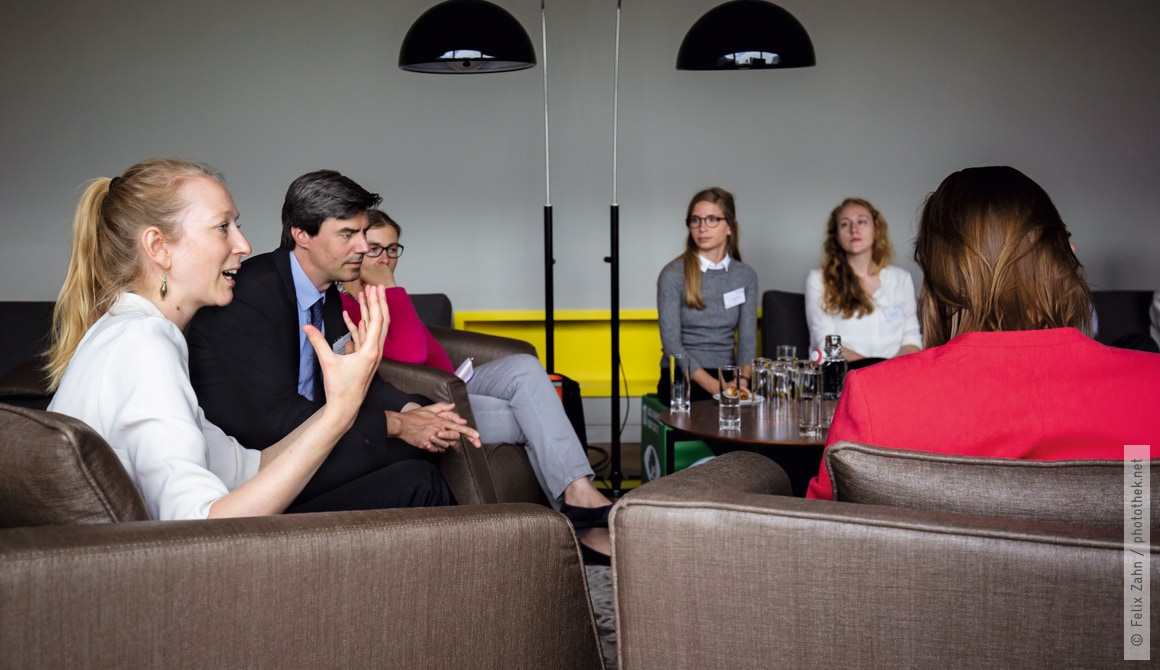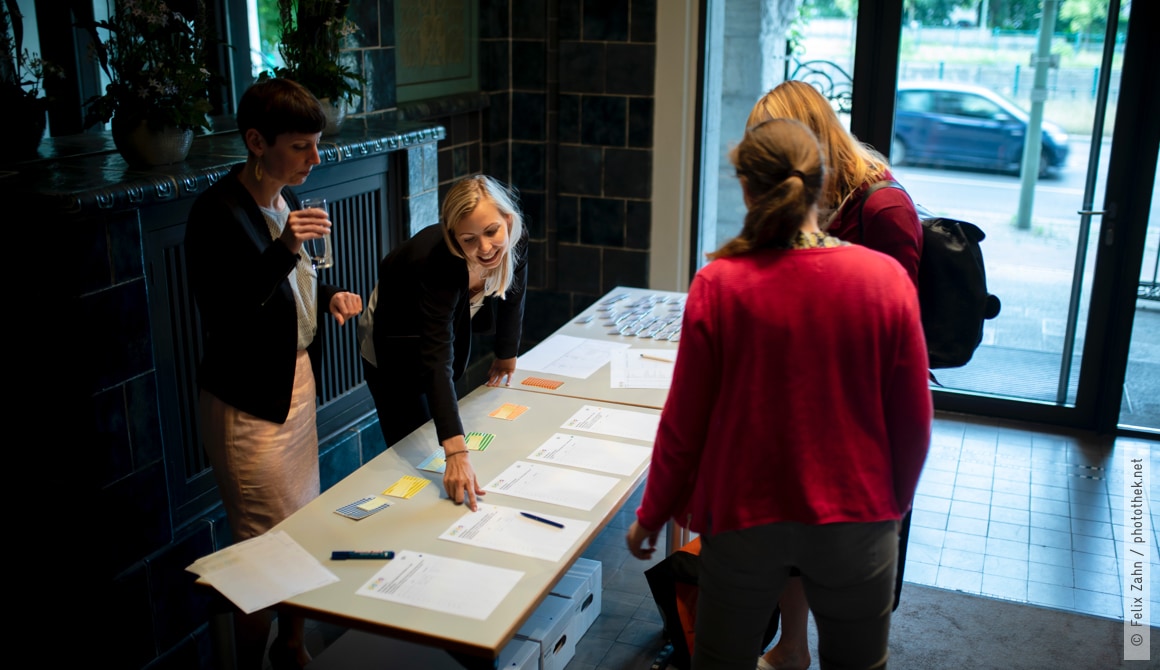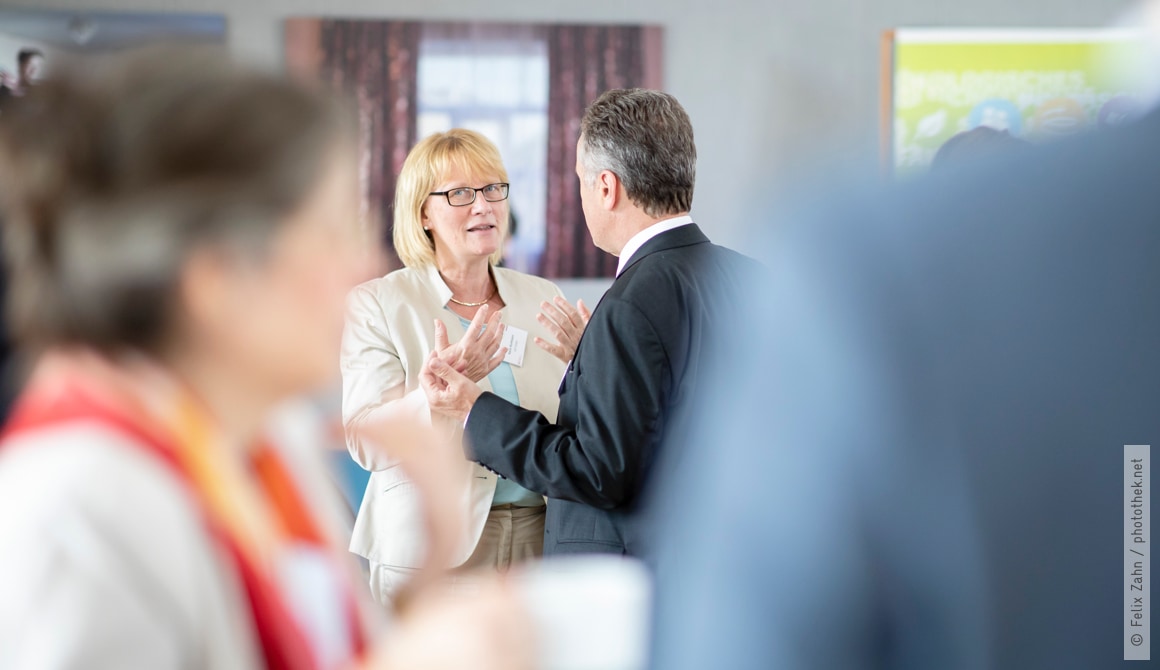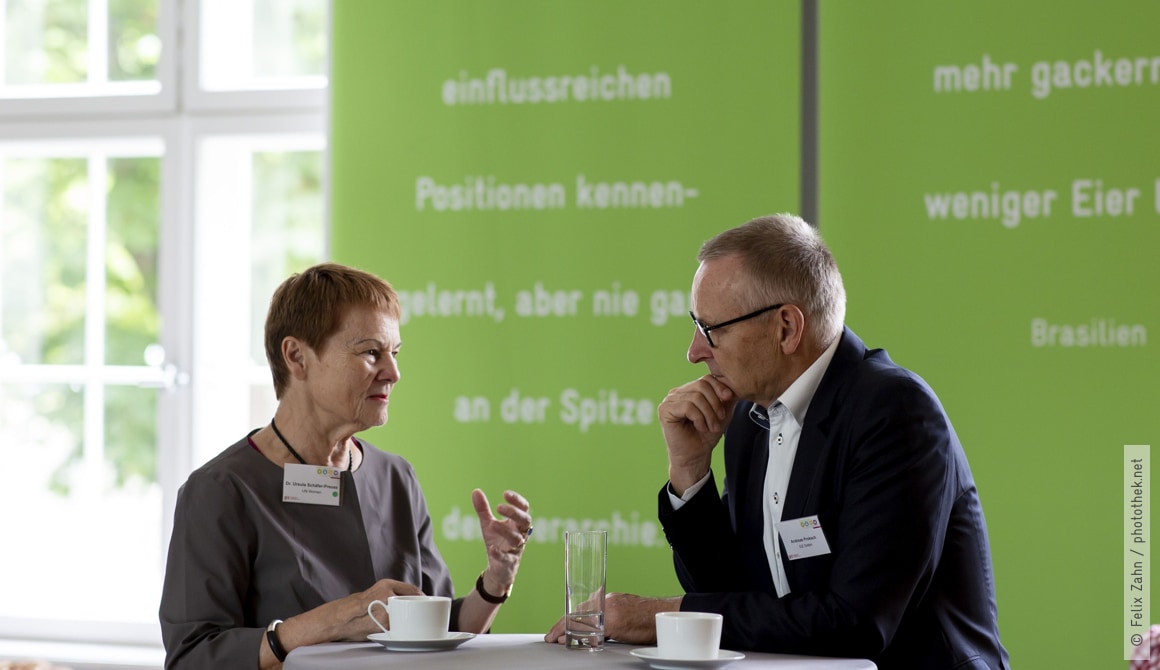Stakeholder
dialogue
–
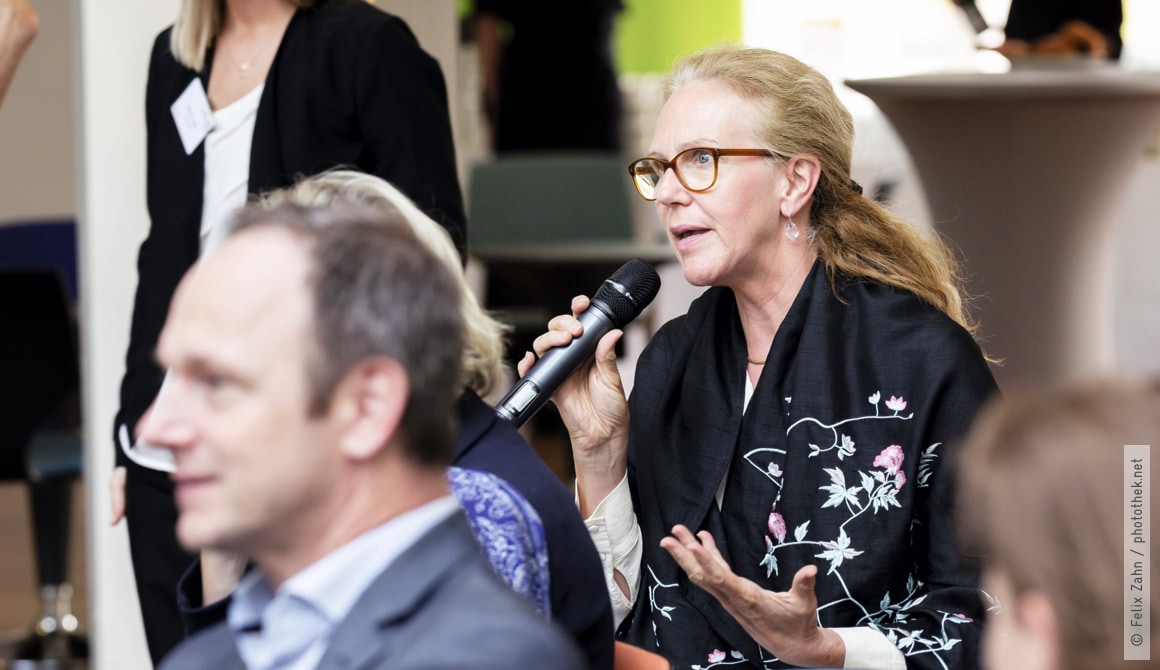
As a federal enterprise, we aim to act credibly and be a model of best practice in the area of corporate sustainability. Our stakeholders expect that from us too. That is one of many findings of the Stakeholder Dialogue, which we held once again in 2018.
ORIENTATION AND INSPIRATION FOR CONTINUOUS DEVELOPMENT
What do our internal and external stakeholders expect of us, and how do they rate GIZ’s key issues, opportunities and risks? The answers to these questions are an important point of orientation for corporate governance – and not least a source of inspiration for the continuous development of our services. We are therefore fastidious in evaluating the information we receive from various bodies and advisory boards as well as through surveys and dialogue with commissioning parties and partners.
MULTIFACETED STAKEHOLDER DIALOGUE
In 2018, we conducted our second Stakeholder Dialogue, which we hold every two years. The starting point was an online survey involving over 1,700 internal and external stakeholders. They evaluated GIZ’s services in the area of sustainability, and specified and prioritised what they considered to be the most important topics. Managers from GIZ then examined the survey results in greater detail with a total of 70 participants – including around 50 externals – at GIZ’s Stakeholder Day in Berlin, and developed ideas and solutions with them.
RESULTS OF THE STAKEHOLDER DIALOGUE
The results show that our internal and external stakeholders consider credibility to be a central requirement for our work, and are keen to know how seriously we take the topic of sustainability within the company. They would like to see GIZ take a pioneering role as a sustainable company. The feedback also suggests that GIZ should be mindful of what its partners in Germany and abroad need to work together more effectively and, above all, on an equal footing, and what they need to achieve joint objectives in an optimal way. Environmental protection and climate change mitigation are extremely important for both internal and external stakeholders – whether in terms of how we apply environmental criteria in procurement, how we can expand green mobility or how we can make our project work even more climate-friendly. Social aspects are also becoming increasingly relevant, including issues such as work-life balance, health and procurement.
